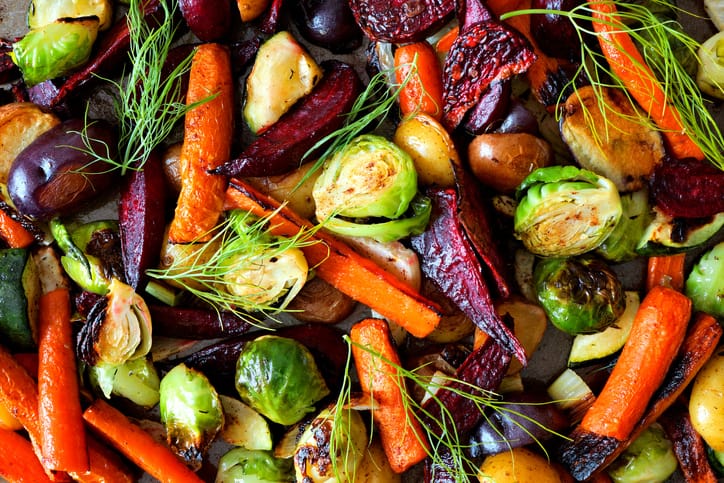Cooking is a process that was developed by the ancients to make foods last longer taste better. It turns out that cooking and preparing your vegetables in certain ways may also make them easier to digest by breaking down the cell walls and releasing the goodness inside. Some nutrients in foods are easier for the body to digest when cooked however some nutrients are lost in the cooking the process.
Finding the balance is tricky however there are some methods of cooking which are definitely better than others for maintaining the nutritional value in vegetables.
Saute Instead of Fry
Deep-frying food gives it that crunchy and oily flavor however what it gives in taste, it takes away in nutritional value. When you fry your food, the oil penetrates into the vegetables and dissolves the fat-soluble nutrients such as Vitamins A, D, E and K. Once they are dissolved, the nutrients are left in the oil when you pull the food out.
Sauteing is a better option than frying because non of the nutrients are lost in that way. Another benefit of sauteing is that if you use a healthy oil then it infuses the food that your cooking with the benefits that the oil has. Olive oil is paricularly good for sauteing due to its nutritional content however it has a low smoking point therefore you shouldn’t use high temperatures when sauteing with it.
Steam Rather Than Boil
Boiling has a similar effect to frying however with boiling you lose water-soluble nutrients and vitamins such as Vitamin C and Vitamin B. Steaming is a much better option because it allows you to cook your food at a lower temperature and all of the nutrients stay locked in. Steaming is definitely the better option for cruciferous foods such as broccoli because they are at the highest risk of losing their nutrients when boiled.
The exception to this rule is if you plan on drinking the water along with the meal in the case of soups and stews. If you must boil your foods then you are advised to boil them whole in order to keep more of the nutrients locked in.
Grilling and Baking
These three methods of cooking use ‘dry’ heat to cook food, therefore, there is no chance of the nutrients being left behind in the cooking medium. The issue with methods such as baking though is that the vegetables must be exposed to a high heat for a long period of time which puts the nutrients at a higher risk of denaturing. Artichokes, celery, green beans, and onions tend to maintain their antioxidant capacity when they come out of the oven but green peppers do not.
Ditch The Microwave
Microwaves heat your food by exposing them to a high dose of radiation . This radiation heats the food from the inside out by causing friction between the molecules. Some studies suggest that this radiation causes the nutrients in food to denature at a much higher rate than they would if you used conventional cooking methods and denatured nutrients are much tougher for the body to digest. Choose to use a skillet or the oven instead if you want to reheat your food because you’ll keep more of the nutrients, and it will taste better too.
Nutritional scientists are still at odds about whether microwaves are bad for the nutritional value of your food or not however if even the professionals are not certain, then you’re better off opting not to use it at all until conclusive evidence becomes available.
Vegetables That Should and Shouldn’t Be Cooked for Maximum Nutritional Benefits
Some camps, such as raw vegans, believe that cooking vegetables destroys most of the nutritional value in food . There is some truth to their claims however you are still able to enjoy a long and healthy life by cooking your vegetables anyway. In fact, there are some nutrients in vegetables which are proven to be more readily absorbed by the body when cooked.
Tomatoes, which are high in lycopene, are definitely best served cooked. To increase the absorption rate you should chop them up or even puree them. Foods that are rich in beta-carotene such as carrots and green-leafy vegetables are also better for the body when cooked at low heats. For potatoes, baking and frying them does wonders to release vanillic acid, chlorogenic acid and caffeic acid.
Fruits, red peppers, garlic and onions are high in Vitamin C and cancer-fighting sulfuric compounds which are highly unstable when heated therefore they are best eaten raw, so try to mix them in uncooked with cooked vegetables to get the best nutritional value out of your meals.
